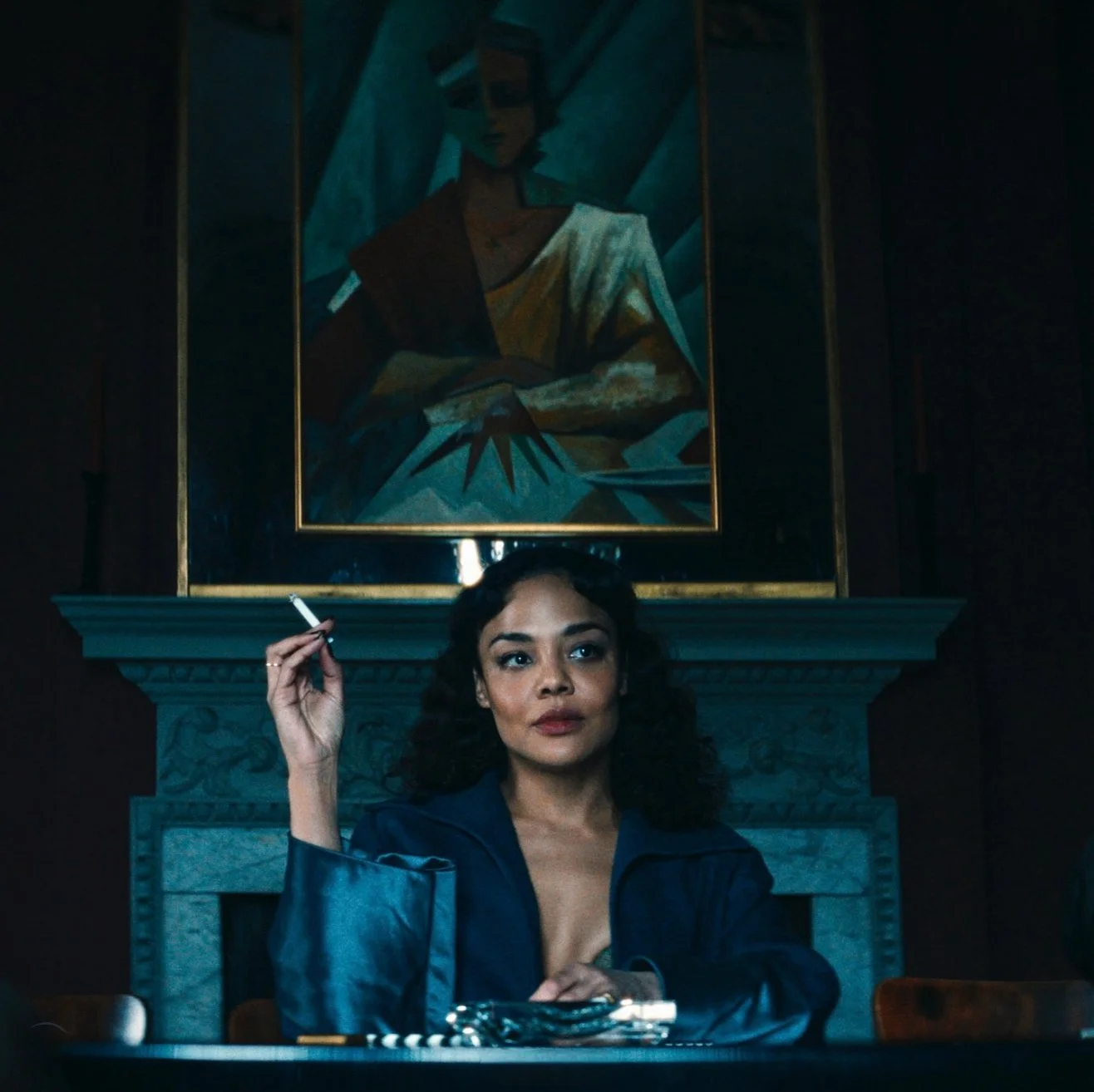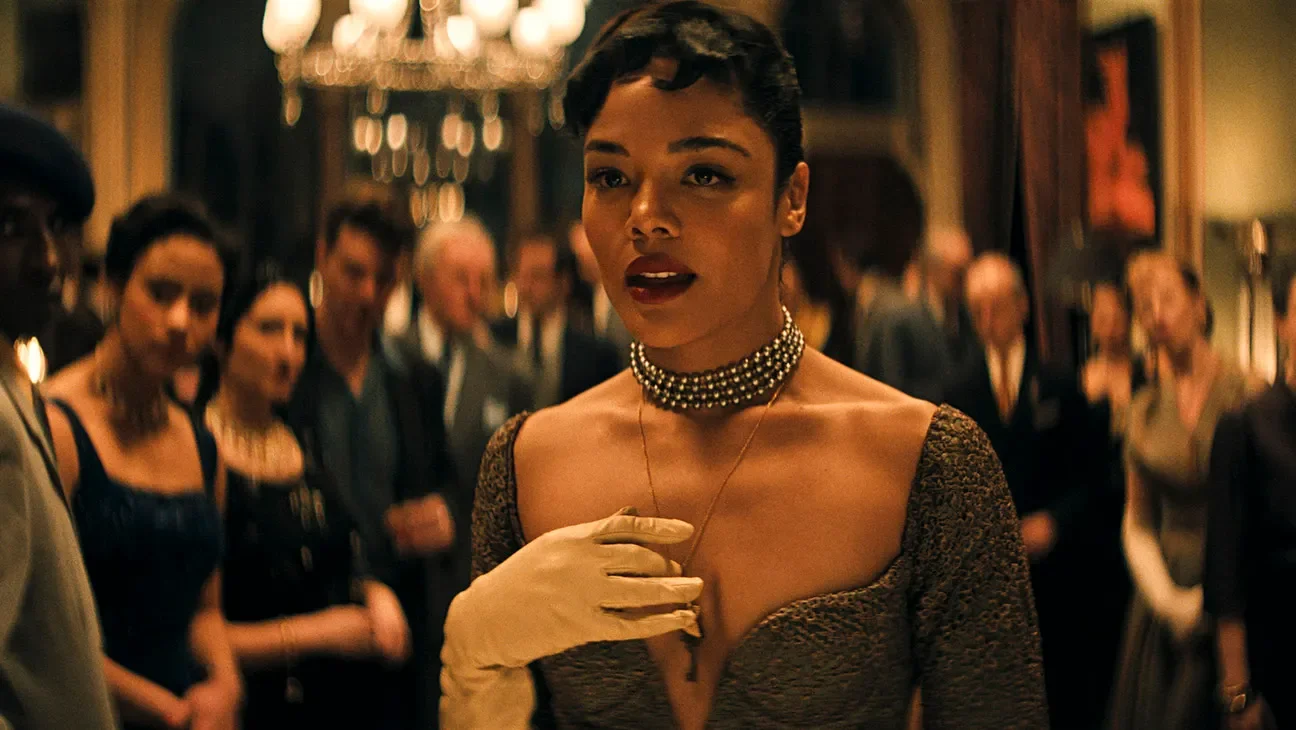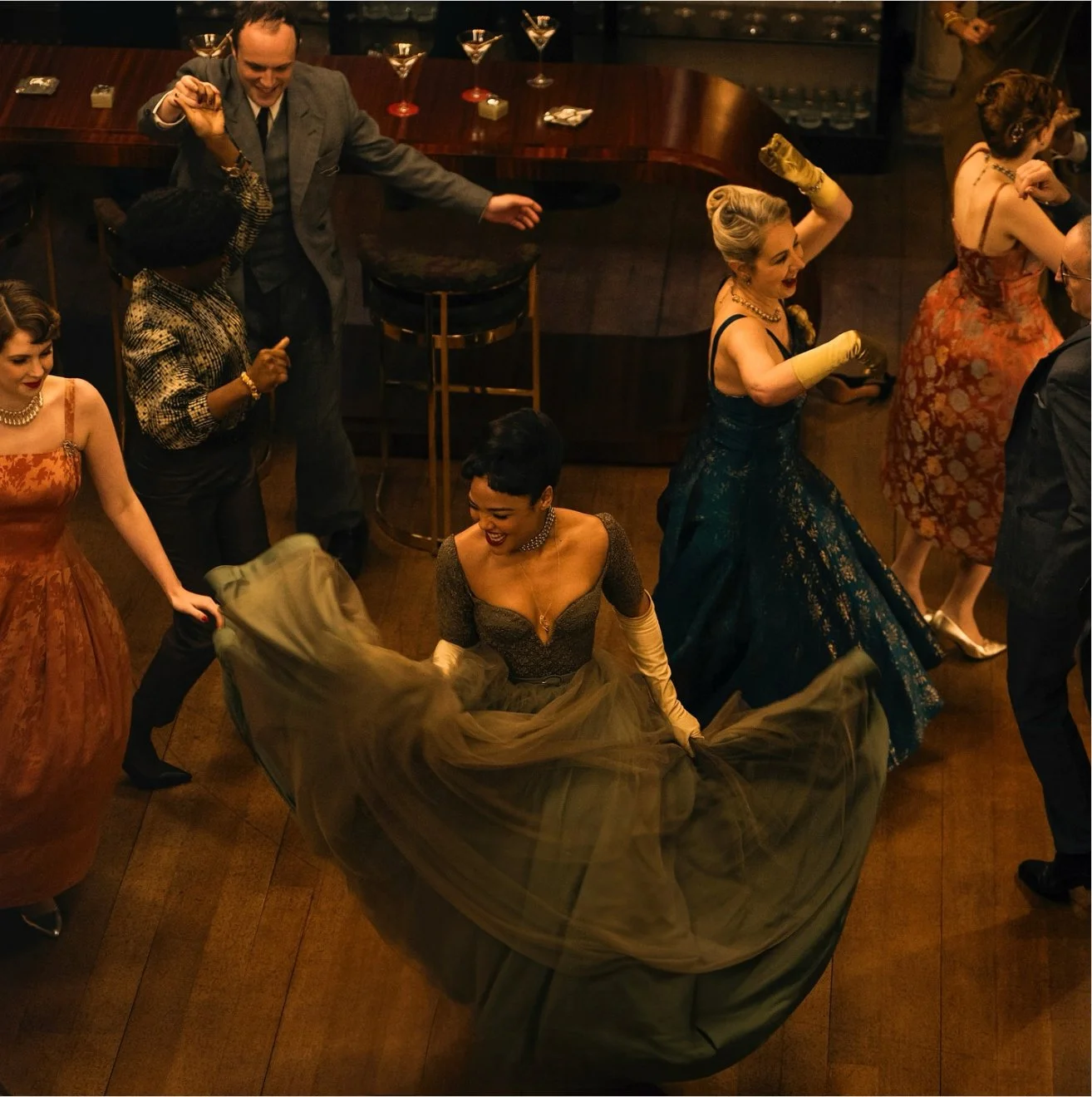‘Hedda’ Review: Simply Nia DaCosta’s Best Film [TIFF 25]
Thanks to its assured sense of style and magnifying performances from Tessa Thompson and Nina Hoss, Nia DaCosta crafts her best-ever movie with a modern adaptation of Henrik Ibsen’s Hedda Gabler and turns the play in more daring directions than its original author ever envisioned.
Nia DaCosta’s adaptation of Henrik Ibsen’s Hedda Gabler immediately strikes our attention with its arresting cinematography from Sean Bobbitt in the movie’s opening credits sequence. It plunges us in a world filled with depravity and excess, right before we know what occurred on an evening that no one will forget. Poetically representing the longing of its titular character (played by Tessa Thompson) as she sits with what has happened before the audience knows the full story, the movie boldly pronounces itself as a turning point in Nia DaCosta’s career as a filmmaker, who, up to this point, was known for having helmed installments of two major Hollywood IPs, with her personality quasi-omnipresent in both of them.
Hedda is the daughter of a prominent colonel and the wife of George Tesmond (Tom Bateman). In the events leading up to an in media res scene where she is interrogated by the police after a murder, Hedda convinces George to throw a lavish party, where all are invited, including her former lover, Eileen Lovborg (Nina Hoss), an academic who is vying for the same position that George is aiming to get. Throughout the evening, we begin to realize that Hedda has been scheming all along to get Eileen back to the position she once was before her friend Thea Clifton (Imogen Poots) sobered her up and made her the respectable figure she now is.
While the play was divided into four acts, DaCosta adds another one at the tail end of the picture and significantly changes many narrative and character beats that could divide people familiar with the original source material. For instance, she gender-swaps Ejlert Løvborg to Eileen, which turns the heteronormative love triangle into one rife with queer subtext. However, and unlike an upcoming adaptation of a popular literary work featuring songs from a famous artist, DaCosta’s changes serve the broader aesthetic at play and turns the material into a more sexually-charged tale with a powerful dramatic crescendo that grips you from the minute it opens and never lets you take away your eyes off the screen.
I’ll say something that few have dared to say until today: DaCosta’s previous films don’t seem like they were actively hers. Little Woods, maybe, but her voice as an artist seemed limited, just like the 2021 reboot of ‘Candyman’ (don’t misunderstand, the film is excellent) and The Marvels (a decent experience). Even if I enjoyed all the above-mentioned movies, I was still waiting for the day where I would see what “a Nia DaCosta film” would look like, where her cinematic sensibilities would be fully showcased for the world to see. ‘Hedda’ is that film. It may not be perfect, nor is it the year’s best, but it certainly is one that positions DaCosta as a major voice in American cinema that’s bound to have a fruitful career if she strays away from franchise fare.
Of course, the jury is still out on whether she will efficiently follow up on Danny Boyle’s 28 Years Later with The Bone Temple. However, as it stands, Hedda reveals precisely what she’s capable of. Her aesthetic is controlled and enveloping, the score from Hildur Guðnadóttir masterfully punctuates each strong dramatic turn, and the razor-sharp cutting from Jacob Secher Schulsinger adds so much intensity to an already tension-filled story.
It also helps that both Tessa Thompson and Nina Hoss magnify the screen. Thompson, now a frequent collaborator of DaCosta’s oeuvre, gives what is likely the best performance of her career as Hedda Gabler, while Hoss’ Eileen is a note-perfect match to the scheming titular protagonist. While the movie is a bit too dialogue-heavy and gets frequently dense, Hoss and Thompson always hold our breaths whenever they enter high-spirited monologues, as the camera closes up on their tormented faces, which represent not just what they’re feeling now, but the array of emotions they’ve had up until that point.
There’s a particular monologue, from Hoss, that took my breath away and literally had me on the edge of my seat, which, sadly, few will get to experience on the big screen. Bobbitt’s visual language is worthy enough to be seen at such a scale, as his sweeping camera movements put us straight into the chaos of an evening that few will forget. Sadly, Amazon MGM Studios is releasing this incredible achievement in DaCosta’s personal corpus straight to Prime Video, yet Bobbitt’s cinematography demands the big screen experience. The cinema not only enhances the movie, but makes every frame feel alive and full of energy, one so urgent you almost feel transported into the world DaCosta depicts in her picture.
Hedda may be making significant changes from Ibsen’s play, yet they actively improve the story DaCosta wants to tell. In a way, this feels like Hedda (Nia’s Version) as opposed to staying as faithful to the text as possible. Adding your personal voice to a source material that speaks to you can be a double-edged sword, especially regarding another literary adaptation coming out next February. However, DaCosta effectively transcends Ibsen’s words by staying true to herself first and foremost and finally giving us a movie that reveals exactly what kind of auteur she is.
Hedda is also really funny, but DaCosta’s script never loses sight of the dramatic center at the heart of the story, and the tragedy that unfortunately befalls the characters by the “fourth act.” When it occurs, it hits like a deeper punch in the gut than Ibsen’s play, because we actively connected with each of the characters and understood their plight. This may not be an “accurate” transposition that fans of the play wanted, yet Hedda undoubtedly cements DaCosta as one to watch, as she figures out what her next moves within Hollywood will be, hopefully with even more decidedly personal works of art like this one.



